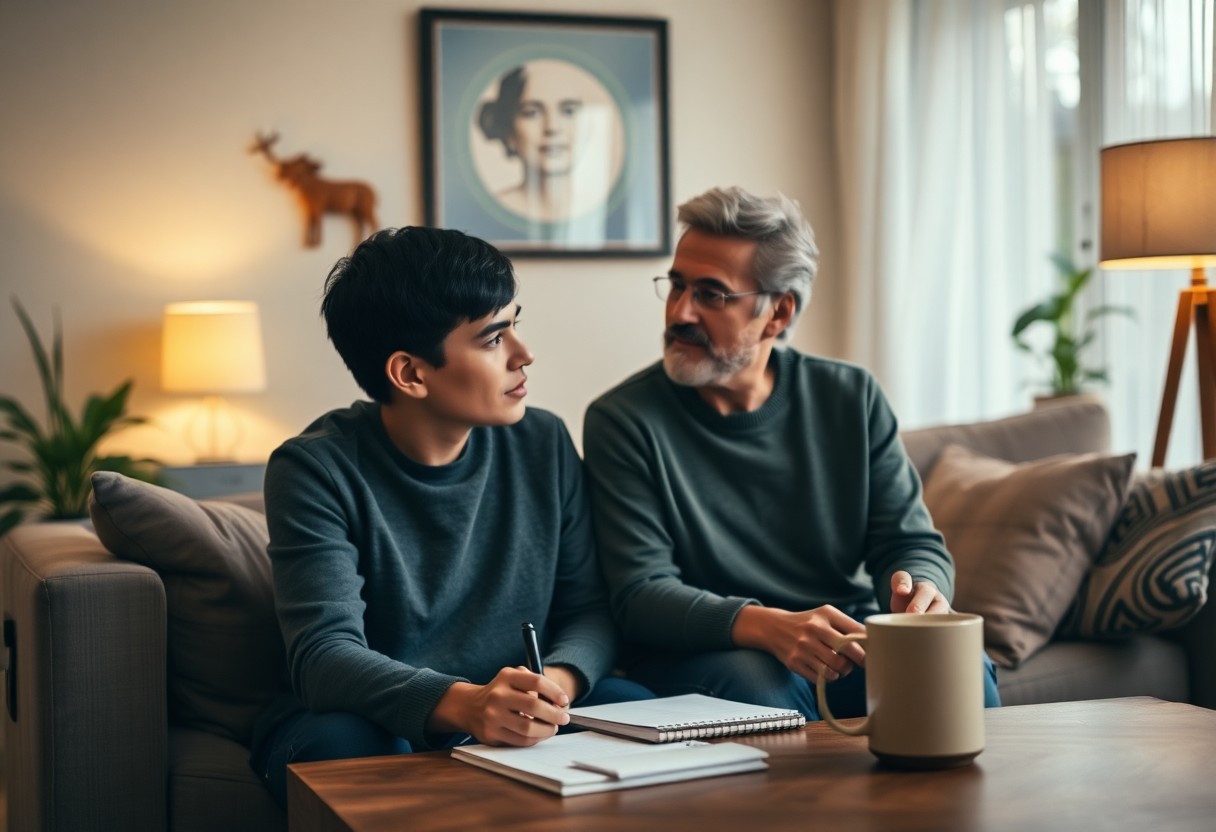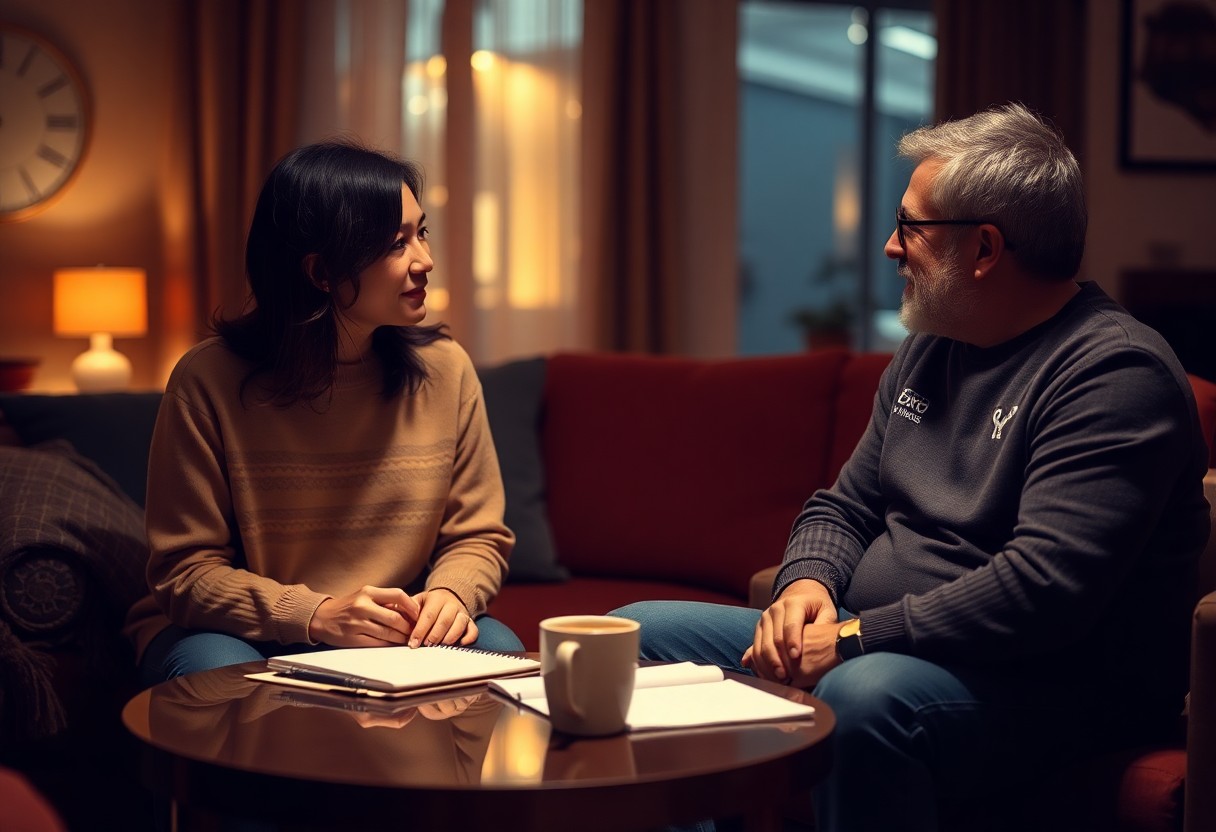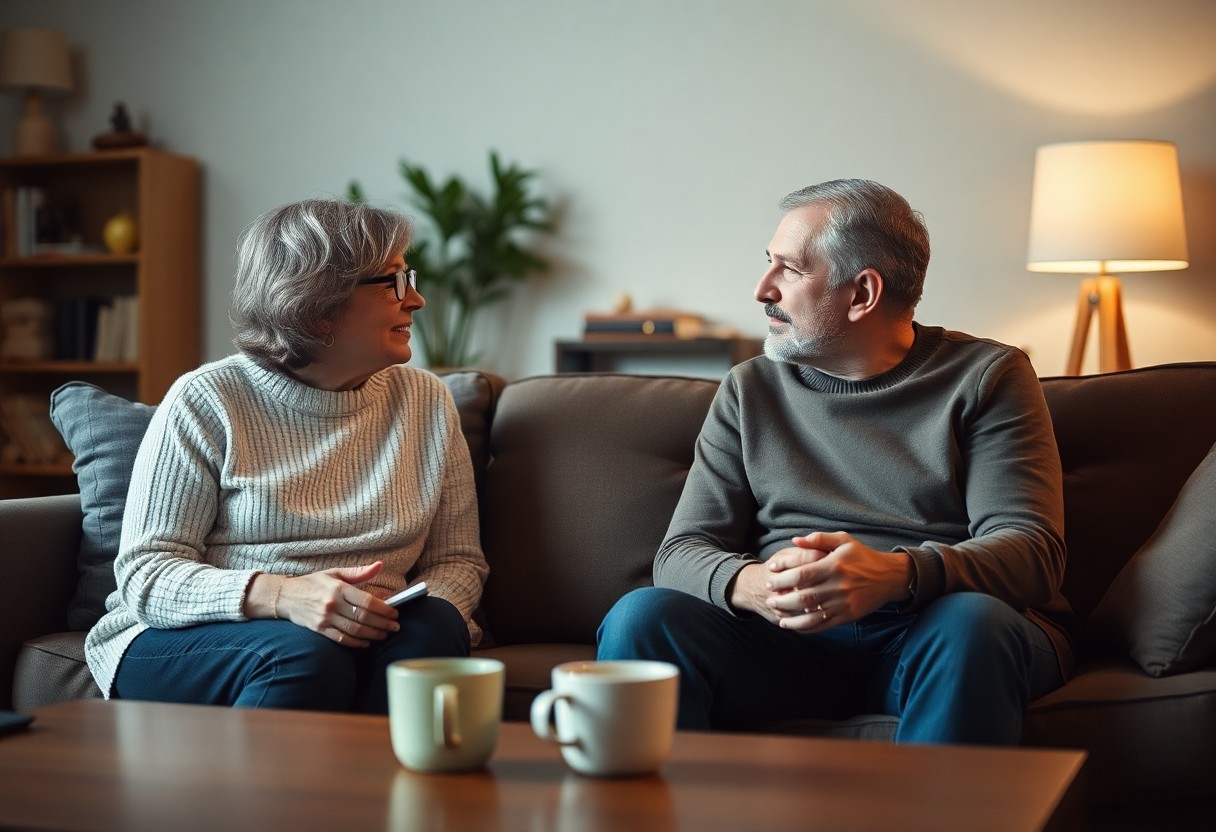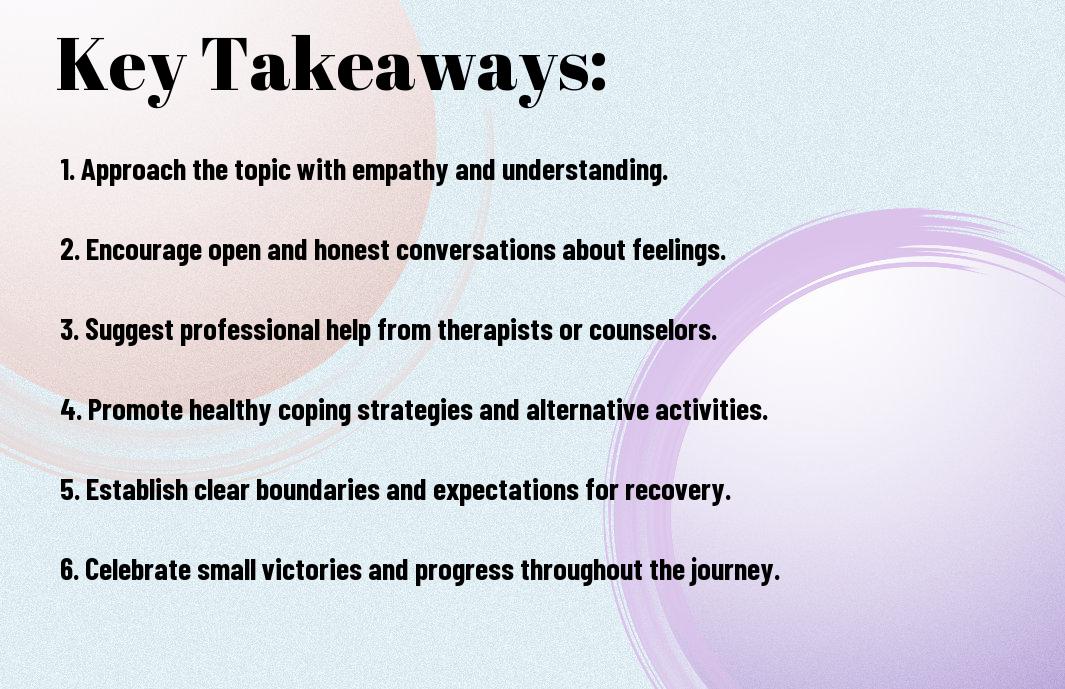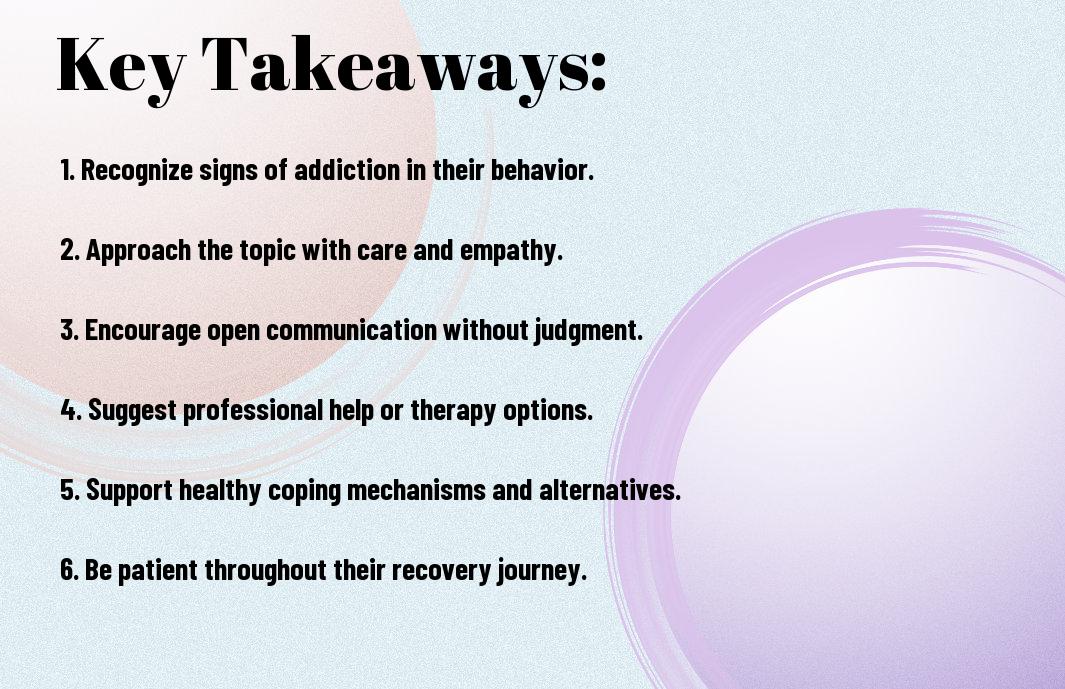Overcoming a porn addiction can be a challenging process, not only for the individual but also for their loved ones. If you suspect someone in your life is struggling with this issue, it’s important for you to take action promptly. By understanding the signs of addiction and providing supportive resources, you can make a significant difference in their journey towards recovery. This guide will explore practical steps you can take to assist them effectively and foster an environment of trust and healing.

Key Takeaways:
- Addressing porn addiction early can prevent further negative impacts on mental health, relationships, and daily functioning.
- Open and non-judgmental communication fosters trust and encourages the individual to seek help.
- Providing resources such as therapy, support groups, or educational materials can assist the person in understanding their addiction and how to cope.
- Setting clear boundaries and encouraging healthy habits can create a supportive environment for recovery.
- Recognizing that addiction is a complex issue can help in offering compassion and understanding rather than blame or shame.

Understanding Porn Addiction
A porn addiction can be an insidious and increasingly common issue that affects many individuals across different demographics. It often manifests as a compulsive need to consume pornography, leading to negative consequences in personal relationships, mental health, and overall well-being. Recognizing this addiction early on can be vital for effective intervention and support, allowing you or someone you care about to reclaim a healthier, more balanced life.
Defining Porn Addiction
Behind the definition of porn addiction lies a behavioral pattern characterized by excessive consumption of pornography despite adverse effects. It often means that you find it challenging to resist the urge to view porn, which disrupts daily functioning, relationships, and emotional stability, making it imperative to approach the issue with understanding and compassion.
Recognizing the Signs and Symptoms
One of the first steps in addressing porn addiction is identifying the signs and symptoms that indicate an ongoing struggle. These may include a preoccupation with pornography, difficulty focusing on everyday tasks, and feelings of guilt or shame following consumption. You may notice that your use of porn escalates over time or that you rely on it to cope with stress or emotional pain.
Understanding the signs and symptoms of porn addiction can empower you to act. You might experience withdrawal symptoms when unable to access porn, resulting in irritability, anxiety, or restlessness. Additionally, your relationships may suffer as you prioritize online content over meaningful connections with others. Recognizing these patterns is the first step toward seeking the help you need to overcome addiction and rebuild a healthy relationship with yourself and others.
The Impact of Porn Addiction
You may not be aware, but porn addiction can profoundly affect every aspect of an individual’s life, from mental health to personal relationships. It can lead to feelings of shame, isolation, and hopelessness. If you wish to navigate this sensitive topic, consider exploring Four Things to Do When You’re Dating Someone Who … to better understand how to provide support and encouragement.
Emotional and Psychological Effects
One of the major impacts of porn addiction is on emotional and psychological well-being. Individuals may experience increased anxiety, depression, and even feelings of inadequacy, negatively affecting their self-esteem and overall mental health.
Effects on Relationships
Any relationship can suffer when one partner struggles with porn addiction. Communication often breaks down, trust erodes, and the emotional connection may weaken, leaving both partners feeling frustrated and distant.
Considering the effects of porn addiction on relationships, it’s necessary to address the underlying issues openly. By fostering honest conversations, setting boundaries, and seeking appropriate help, you can work together to rebuild trust and restore intimacy. A healthy partnership relies on mutual understanding, support, and commitment to overcoming challenges together.
Why Immediate Action is Crucial
Many individuals underestimate the severity of porn addiction, often thinking they can handle it alone. However, delaying action can exacerbate the situation, leading to emotional distress, relationship problems, and even mental health issues. By addressing the addiction promptly, you not only help the affected person regain control over their life but also foster open communication and support, which are vital for recovery.
Long-term Consequences
Crucial impacts of unresolved porn addiction extend beyond personal shame. They can include chronic relationship issues, reduced intimacy, and even sexual dysfunction. Additionally, prolonged exposure to pornography can alter your brain’s reward systems, leading to difficulties in experiencing pleasure in everyday life. Recognizing these potential outcomes can motivate you to act decisively in supporting your loved one.
Benefits of Early Intervention
The advantages of acting early in the face of porn addiction are significant. When you intervene sooner, you can help prevent further damage to personal relationships and mitigate the psychological effects of the addiction. Early action also facilitates the development of healthier coping strategies, allowing for improved emotional regulation and fulfillment.
Understanding the benefits of early intervention can pave the way for recovery. By addressing the addiction shortly after it becomes apparent, you help the individual build a strong foundation for healing. This proactive approach often leads to better outcomes in terms of emotional stability, improved relationships, and an overall enhanced quality of life. Your support during this critical time can make all the difference in their journey toward recovery and well-being.
How to Support a Loved One
Unlike many challenges, supporting a loved one with a porn addiction requires a sensitive and understanding approach. You play a vital role in their recovery journey by offering emotional support, listening to their concerns, and encouraging them to seek professional help. Your proactive involvement can significantly impact their path to overcoming addiction and rebuilding their life.
Open and Honest Communication
Along your journey to help your loved one, foster an atmosphere of open and honest communication. Encourage them to share their feelings and experiences without fear of judgment, allowing them to express their struggles as they navigate their addiction. Your empathetic listening can help them feel valued and understood.
Creating a Supportive Environment
Before you can effectively support your loved one, it’s important to create a supportive environment that fosters healing and growth. This involves eliminating triggers associated with their addiction and replacing them with healthy activities that promote engagement and connection.
With a supportive environment, you can lay the groundwork for lasting change. This might include limiting access to certain content online, encouraging participation in new hobbies, or suggesting therapy options that align with their recovery goals. By actively cultivating positive experiences, you show that you believe in their ability to overcome challenges and grow stronger in their journey.
Resources and Professional Help
All individuals struggling with a porn addiction can benefit from various resources and professional help. Seeking assistance is an important step toward recovery, as trained professionals provide guidance, understanding, and effective strategies tailored to your unique situation. Different types of support are available, including therapy, support groups, and online resources that cater to your specific needs and preferences.
Therapy Options
After recognizing the need for support, consider exploring therapy options. A licensed therapist experienced in addiction can help you uncover underlying issues and develop coping strategies. Various therapy modalities, such as cognitive-behavioral therapy and mindfulness techniques, can address maladaptive behaviors and promote healthier habits. Engaging in this process will empower you to reclaim control over your life and rebuild connections.
Support Groups and Online Resources
Support groups and online resources can be a valuable component of your recovery journey. Joining a group allows you to connect with others facing similar challenges, fostering a sense of community and shared understanding. Online forums, blogs, and webinars offer additional avenues for support and information, making it easier for you to access help at your convenience.
Consequently, when you engage in support groups and utilize online resources, you open doors to collective wisdom and motivation. Many groups focus specifically on porn addiction, providing safe spaces for discussion without judgment. You can share experiences, receive encouragement, and learn coping techniques from those on similar paths. Researching and participating in these groups can significantly enrich your recovery experience by reinforcing the knowledge that you’re not alone in this journey.

Coping Strategies for the Individual
Once again, it’s important to focus on effective coping strategies to navigate the challenges posed by porn addiction. Acknowledging your behavior and its impact on your well-being is the first step. You can make productive choices that promote healing and recovery. Incorporating supportive habits into your daily life can significantly enhance your ability to manage triggers and emotional lows, ultimately leading you to a healthier state of mind.
Developing Healthy Habits
On your journey to overcoming porn addiction, developing healthy habits can create a supportive environment for your recovery. Start small by engaging in activities that promote your physical and mental well-being, such as regular exercise, reading, or journaling. Surround yourself with positive influences and allocate time for self-reflection, as these practices will reinforce your commitment to change.
Techniques for Managing Urges
Habits can significantly influence how you handle urges when they arise. Developing a toolkit of techniques to manage these impulses is vital to maintaining your progress. This toolkit may include mindfulness practices, distraction methods, and having a list of supportive resources ready when you feel overwhelmed. The key is to recognize your triggers and implement your strategies effectively.
Strategies for managing urges effectively can include deep breathing exercises to help center your mind, engaging in physical activity to release pent-up energy, and practicing mindfulness techniques to bring awareness to your feelings without acting on them. You might also find it helpful to keep a journal where you can track your urges and the triggers associated with them. By identifying patterns, you can better prepare yourself with personalized coping strategies to combat the impulses as they arise.
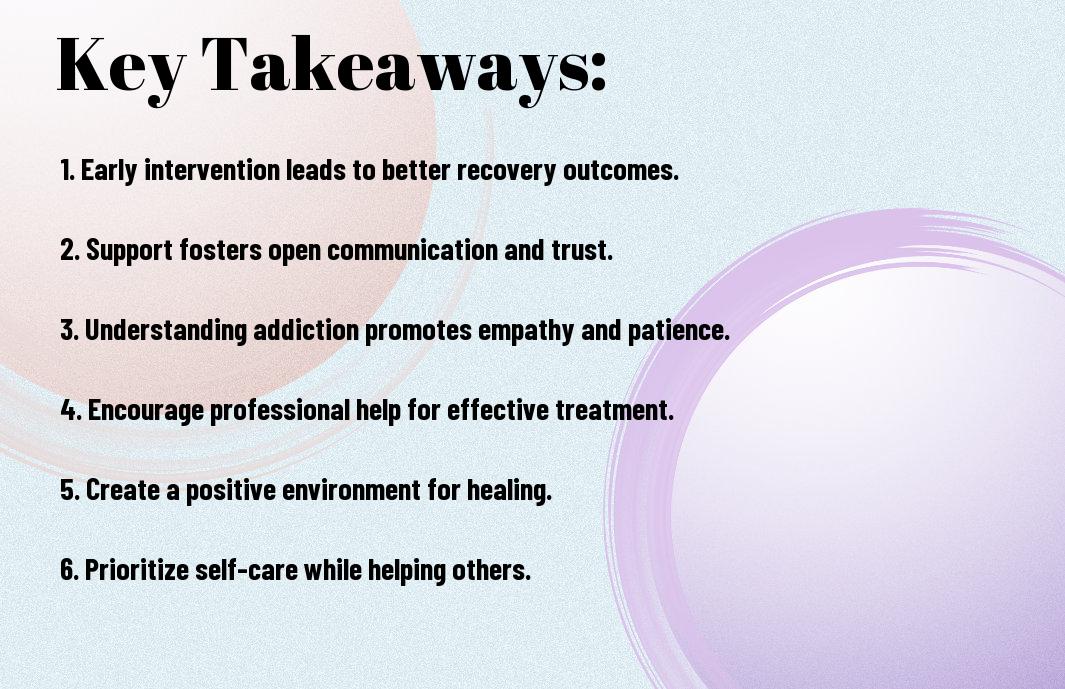
Final Words
Ultimately, addressing a porn addiction in someone you care about is crucial for their emotional and mental well-being. By acting now, you can foster an environment of support and understanding that encourages them to seek help. Be informed about resources and strategies, as your involvement can make a significant difference in their journey to recovery. Approach the situation with compassion and patience, as your role can positively influence their ability to reclaim control over their life.
FAQ
Q: What are the signs that someone may have a porn addiction?
A: Signs of a porn addiction can include spending excessive amounts of time viewing adult content, neglecting responsibilities or relationships due to this habit, experiencing cravings or withdrawal symptoms when not viewing it, and using porn as a primary means of coping with stress or emotional distress. If the individual expresses guilt or shame about their habits yet continues to engage in them, this may indicate a deeper issue.
Q: Why is it important to address porn addiction sooner rather than later?
A: Addressing porn addiction early can help prevent the development of more severe issues, such as diminishing intimacy in relationships, decreased sexual satisfaction, and potential mental health challenges like anxiety and depression. Early intervention offers better chances of recovery and can help maintain healthier relationships and lifestyle choices.
Q: How can I approach someone to talk about their porn addiction without making them defensive?
A: Approach the conversation with empathy and understanding. Start by expressing concern for their well-being and framing the discussion around care for them rather than judgment. Use “I” statements to express how their behavior affects you or others, rather than blaming or shaming them. It can be helpful to create a safe space where they feel supported and not attacked.
Q: Are there effective methods to assist someone in overcoming porn addiction?
A: Effective methods can include encouraging professional help from therapists or counselors who specialize in addiction, suggesting support groups where individuals can share experiences, and promoting healthier coping strategies like engaging in hobbies or physical activities. Building a network of support while respecting their autonomy is key to fostering a positive change.
Q: What role does open communication play in supporting someone with a porn addiction?
A: Open communication is vital as it builds trust and allows for honest dialogues about struggles and feelings. It creates an environment where the person feels safe to share their experiences without fear of shame or judgment. By maintaining an open line of communication, supporters can better understand the individual’s needs and help them navigate their recovery journey.
Q: Is it possible for someone to overcome porn addiction on their own, or is professional help necessary?
A: While some individuals may successfully manage their addiction independently through self-help strategies and personal motivation, professional help often provides valuable support, tools, and accountability that can enhance recovery. A therapist can help the individual understand underlying issues contributing to the addiction and teach healthier coping mechanisms.
Q: How can I support my own mental health while helping someone else with their porn addiction?
A: Supporting someone with a porn addiction can be emotionally taxing, so it is important to prioritize your own mental health. Set boundaries to protect your emotional well-being, practice self-care, and seek support for yourself if needed. Engaging in activities that nourish your mental health and discussing your feelings with trusted friends or a professional can help maintain balance as you provide support to someone else.

